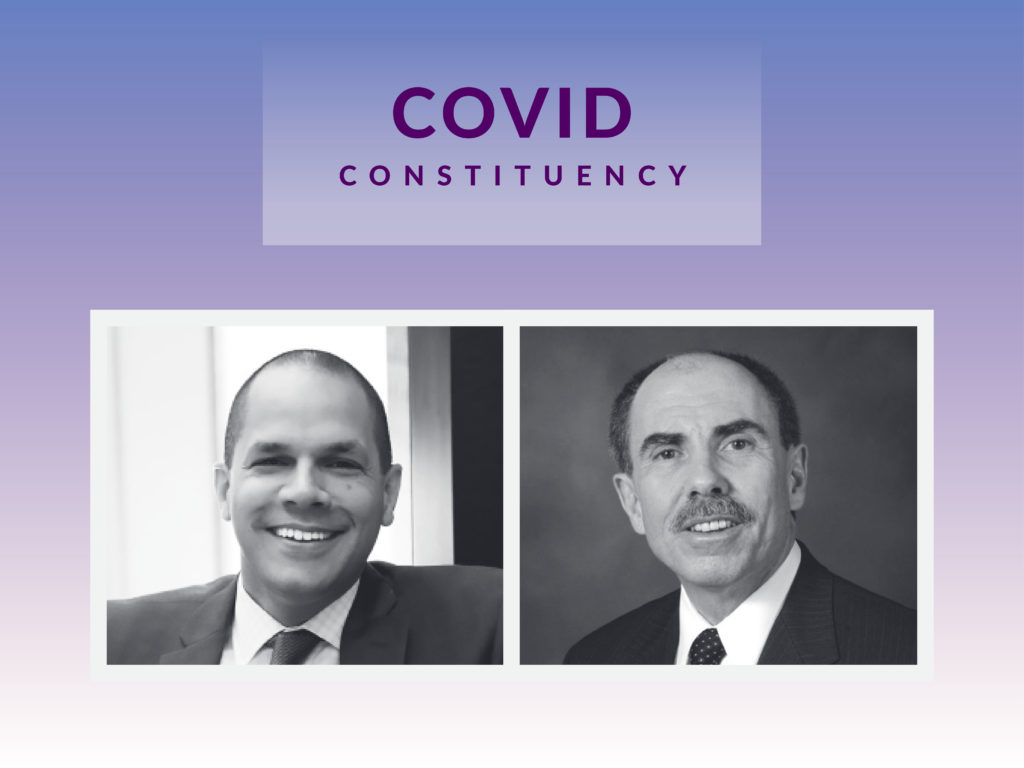

December 15, 2021

The COVID Constituency is a project developed by The Hunt Institute, in collaboration with Governor Bob Wise, former U.S. congressman and governor of West Virginia. The project seeks to collect firsthand experiences, perceptions, and priorities from students, parents, and teachers, and translate them into actionable policies that will fundamentally change education for the better. This blog series will offer space to share out and amplify the desires of the COVID Constituency and provide resources that will help inform policymakers as they work to transform education, while allowing opportunity for others to contribute information and partner in this important work.
Over the past several months, The Hunt Institute conducted research to better understand priorities of the COVID Constituency. We administered surveys, conducted focus groups, and synthesized research to identify how education leaders can develop and implement new policies to address these issues. In the new year, The Institute will publish policy briefs informed by this research to support policymakers as they work toward education change.
Our forthcoming policy briefs on whole child education and workforce training outlines potential policy actions for legislators. Read on for a preview of our briefs.
New knowledge about human development from neuroscience and the sciences of learning and development demonstrates that effective learning depends on a positive school environment supporting student growth across all developmental pathways – physical, psychological, cognitive, social, and emotional. Such an environment takes a “whole child” approach to education, addressing the distinctive strengths, needs, and interests of students as they engage in learning.
As the country recovers from the effects of the pandemic, there is a strong push for more student-centered education. Seventy-eight percent of adults agree students learn better through personalized instruction, and eight in ten parents support structured social, emotional, and mental health support for their child. One parent from our focus groups emphasized wanting to see her kids be happy.
Through the adoption of whole child education and personalized learning, policymakers and schools can better meet the non-academic needs of students, and in turn, facilitate greater academic achievement. Communities in Schools has supported schools in adopting the whole child approach to education by bringing community resources into public schools, making them more accessible for students.
States like Michigan, Vermont, and New York are at the forefront of this work. Michigan uses open education resources, which are easily accessible online and print resources, to better fit student needs. Vermont is one of the only states that mandates personalized learning, and does so through Personalized Learning Plans. The Children’s Aid Society in New York City has championed whole child approaches to education for about 10 years, utilizing “wraparound” services to support children inside and outside the classroom. Wraparound services include enrichment programs, greater access to mental health resources in communities, and more.
Additional states are making strides toward whole child education, including North Carolina, which invested in school personnel, like nurses and social workers, to support the whole child and address barriers to quality education.
Our policy brief provides recommendations for policymakers when approaching the adoption of whole child education:
As we recover from the pandemic, parents are concerned about their children acquiring job skills and being fully prepared to enter the workforce. More than nine in ten Americans believe investing in opportunities that pair education and job-skills training with paid work would be an effective approach to ensure people are qualified for good jobs. One-third of Americans consider a lack of education or job-skills training one of the greatest barriers to getting back to work.
One parent from our focus groups shared that growing up, her school devoted significant time and resources to teaching students life skills, including balancing a checkbook. She would like the same life skills training available in school today.
In our post-COVID era, we’ll need to ensure students are prepared to enter the workforce. Currently, healthcare roles, STEM professionals, creative jobs, and the transportation job market are expected to grow, with large declines in customer service, sales, and food services roles. This change in the labor market has greatly changed the types of skills needed to succeed in the workplace.
Overall, prospective employees will benefit from being able to “add value” beyond automated systems, effectively operate in a digital environment, and adapt to varying methods of working in new roles. However, these experiences must be distributed equitably across all prospective employees.
Some states have anticipated this shift in the in the workforce development pipeline. Maryland is allocating $75 million from American Rescue Plan (ARP) funds for employment training and apprenticeships, following the approval of 27 new apprenticeship programs during the pandemic. Additionally, ARP will deliver $350 billion for state and local governments, which may be used for workforce training. Maine is providing $105 million to train workers through career technical education (CTE) and higher education programs, $25 million for youth career exploration, and $15 million to support initiatives that connect workers with job opportunities.
Our policy brief provides additional recommendations for policymakers to consider:
There is a critical need to address the gaps in our education system immediately and answer the call for action from this Constituency. The future of our students and transformation of our schools depend on our local, state, and national leaders to push forward more equitable and sustainable solutions. The work is not over. True education transformation takes time, money, and bipartisan collaboration.
A third brief will cover the digital divide. Read more about this topic in our October blog post.
Join our LinkedIn group to get first access to the policy briefs as they are published early in the new year.